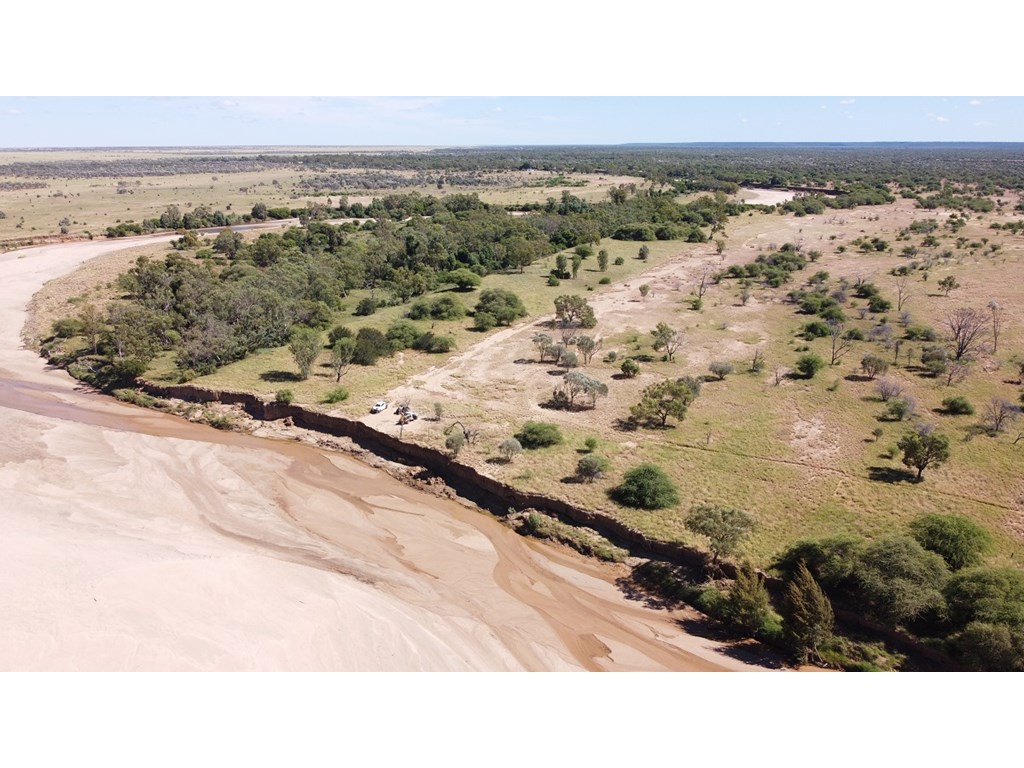
- Designs are being finalised for riverbank disaster recovery work at three sites on the Flinders River near Hughenden.
- Extreme flooding in 2022 washed soil, vegetation and riverbanks downstream to the Gulf of Carpentaria.
- On-site Flinders River restoration is predicted to start in September and is part of the Albanese and Miles Governments’ $32.75 million Riverine Recovery Program.
Progress is underway on a significant riparian restoration program at three sites on the Flinders River near Hughenden, in Northwest Queensland.
The program aims to repair damage from torrential rain and extreme flooding in 2022, which washed valuable vegetation, soil and slabs of riverbank downstream.
Working closely with land managers, councils and Traditional Owners, Southern Gulf NRM has used aerial reconnaissance to identify three high-priority, severely degraded riverbank erosion zones on the Flinders River, including a site at the Hughenden Golf Club.
Cultural heritage surveys by Traditional Owners are predicted to begin at the sites in coming weeks, ahead of boots on the ground for the start of riverbank and revegetation work by September.
The Flinders River riparian restoration project is part of a $32.75 million Riverine Recovery Program funded by the Albanese and Miles Governments’ Disaster Recovery Funding Arrangements (DRFA).
The works will limit sediment and nutrient runoff into the environment and minimise the impact of future flooding on the biodiversity of the Flinders River by:
- Bank re-profiling – reshaping severely eroded sections to create a more stable incline.
- Rock beaching – installing log jams or root wads for added protection.
- Revegetation – planting native grasses, trees, and shrubs with hydromulching of large areas to promote vegetation growth.
Southern Gulf NRM and Verterra Engineering are finalising designs for the program. Disaster recovery and revegetation works will be locally led by contractors, council and Traditional Owners, creating good Queensland jobs.
As stated by Federal Emergency Management Minister Murray Watt:
“Environmental recovery is important for the region, and important for future generations.”
“The Albanese and Miles Governments are committed to disaster recovery, and we welcome the progress that has been made on this program.”
As stated by Queensland Disaster Recovery Minister Nikki Boyd:
“The Flinders River flows directly to the Gulf of Carpentaria, making river health critical to supporting local jobs and the sustainability of the region’s fishing and agriculture industries.
“Aerial reconnaissance and the partnership between engineers, council and Traditional Owners, have pinpointed projects with the biggest potential to build back river resilience to further potential flooding.
“These recovery projects from the devasting 2022 floods put boots on the ground with good, local jobs for Queenslanders, while protecting riverbank biodiversity for future generations.”
As stated by Southern Gulf NRM CEO Alison Larard:
“Our goal for the restoration efforts is to ensure our natural environment sustains healthy biodiversity and ecosystems by establishing vegetation in and around areas of severe erosion until it becomes self-sustaining.”
The Flinders River riparian restoration and disaster recovery work is delivered by Southern Gulf NRM, Verterra Engineering, local suppliers, and sub-contractors, and is jointly funded by the Albanese and Miles Governments under Disaster Recovery Funding Arrangements (DRFA).
Flinders River riverbank assessment images are here: https://www.dropbox.com/scl/fo/q9f170zz4bwlzah4sfq8v/AKdpDBv7HOjCamkbURyALxk?rlkey=7gv00xjmzfbq28496abaixl8q&st=ygwllwpv&dl=0






